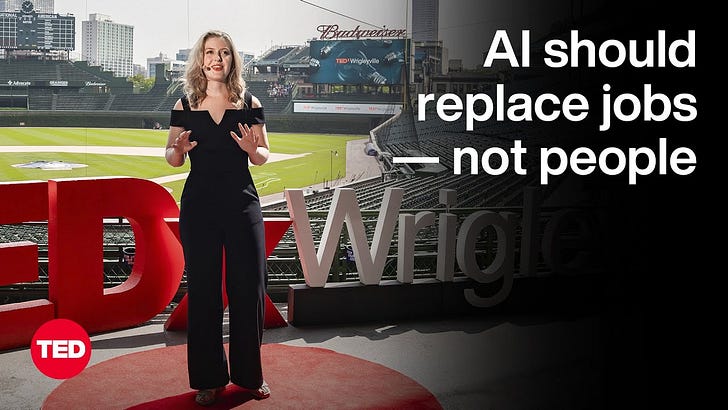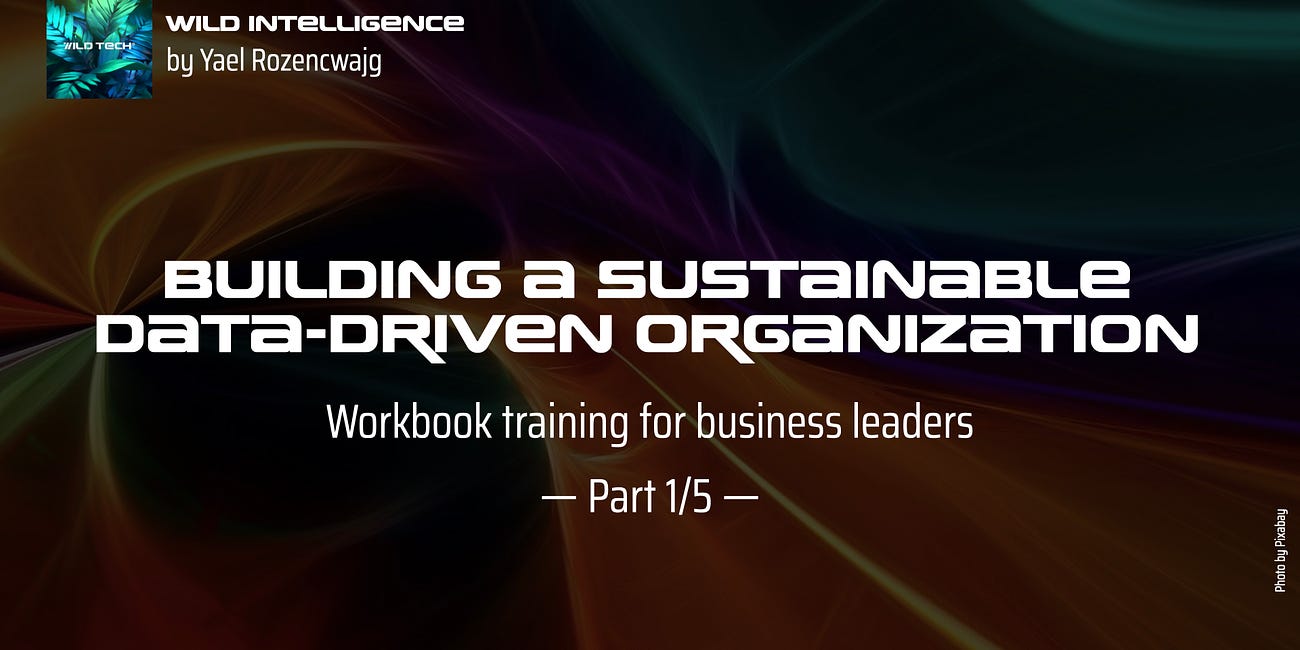🎲 The Rise of the AI co-worker
AI data and trends for business leaders: #2024-16 | AI systems series
Many believe that established companies will reap the most benefits in generative AI. However, it's worth remembering that new technologies have the power to create significant shifts in the economic landscape.
The internet and mobile revolutions brought about significant changes and gave rise to new companies while strengthening the position of established players. As we enter the AI revolution, it remains to be seen whether established companies or new startups will be the ones to make the most of this exciting new field.
This is partly due to ChatGPT's recent success, which has led to a boost in stock prices for tech giants such as Amazon, Microsoft, and Google, with increases of up to 55% since its launch in November 2022. These companies invest heavily in generative AI, with 44% of the capital invested in this field being controlled by Microsoft, AWS, Anthropic, GitHub, OpenAI, and Alphabet.
As we enter the AI revolution, it remains unclear whether established companies or new startups will capitalize on this exciting new field.
↓↓↓ Some facts below ↓↓↓
Decision time: powering data centers with renewables?
📌 Fact 1: AI’s breakout
According to the International Monetary Fund (IMF), 40% of jobs globally will be impacted by AI in 2024. This doesn't necessarily mean complete replacement but a shift in tasks and skillsets.
Generative AI is having a breakout year, creating a new category of "specialized assistants."What will work look like in 3, 5, or 10 years? Will AI shake up the office? How will AI assistants evolve for teachers grading essays or helping doctors analyze scans?
📌 Fact 2: Focus on Human-AI collaboration
McKinsey's analysis suggests that generative AI could boost the global economy by $2.6 trillion to $4.4 trillion annually. What will work look like in 2024? Artificial intelligence will shake up the office, highlighting the growth potential.
A WEF survey found a crucial shift in worker perspectives. Nearly half of European workers expect a significant impact from AI, but with a mix of excitement for innovation and concerns about job security1.
📌 Fact 3: challenges and considerations
75% of the value generated by generative AI is predicted to come from complementary tasks, not replacements. This means focusing on reskilling and upskilling the human workforce2.
The ethical implications of AI need careful consideration. Issues around bias, transparency, and control of AI systems will be crucial to navigate.
Takeaway
As traditional key performance indicators are limited in providing decision-makers with the necessary information and insights, organizations are increasingly adopting smart KPIs powered and influenced by AI. About one-third of enterprises are leveraging AI to create KPIs, and 90% of those firms have experienced significant improvements. These benefits include enhanced collaboration among team members, increased efficiency, and better predictions of future performance.
By understanding the statistics and trends, we can prepare for a future where AI and humans work together to achieve greater productivity and innovation:
How will specific industries adapt their workforces to AI integration?
What new skills will be most in demand for human workers alongside AI?
How can educational systems prepare future generations for the AI-powered workplace?
Resources
AI and the paradox of self-replacing workers | Madison Mohns
Continue exploring
Workbook training: Introduction to the data transformation era, part 1
Hello, This part of the training relates to part 1 of the workbook: "Introduction to the data transformation era." You can read it here. Why this training and how it was conceived Traditional methods advocate a series of sequences of various activities, from specifications to system validation, according to a pre-established schedule.
🎲 Data and trends
This email is sent to you because you signed up for Wild Intelligence by Yael Rozencwajg. Thank you for your interest in our newsletter!
Data and trends are part of Wild Intelligence, as well as its approaches and strategies.
We share tips to help you lead, launch, and grow your sustainable enterprise.
Become a premium member, and get our tools to start building your AI-based enterprise.
Over a third of EU companies adopt AI, and other digital technology stories you need to know https://www.weforum.org/agenda/2024/02/ai-regulation-digital-software-news-february-2024/
The economic potential of generative AI: The next productivity frontier https://www.mckinsey.com/capabilities/mckinsey-digital/our-insights/the-economic-potential-of-generative-ai-the-next-productivity-frontier




